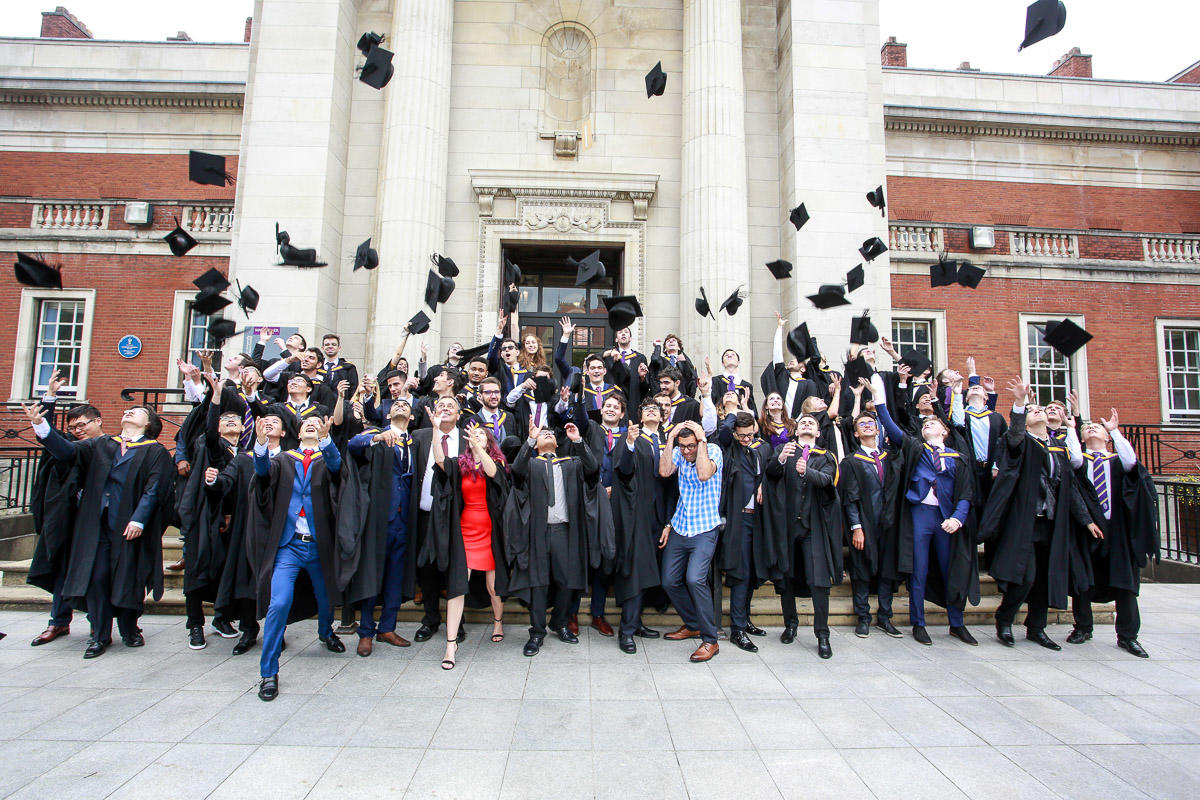2 Employing Your Future
If you are an employer, graduates and undergraduates are an important part of the future of your organisation. Collaborating with us in the Department of Computer Science is one of the best ways to encourage students from the University of Manchester to join your organisation as employees both before and after they graduate, see figure 2.1.

Figure 2.1: Are these graduates the future of your organisation? If you want them to be, you need to engage early and often with students before they graduate. This will increase your chances of recruiting them. University of Manchester graduates celebrating their graduation outside the Samuel Alexander building with photobombing by Gavin Brown 🎓
If you’re not recruiting graduates, your organisation may suffer in the longer term as talented and young employees decide to work for other employers. Recruiting graduates is a cost effective way to build the skills and knowledge your organisation needs to succeed in the future. Find out more in our industry club pages at industry-club.cs.manchester.ac.uk